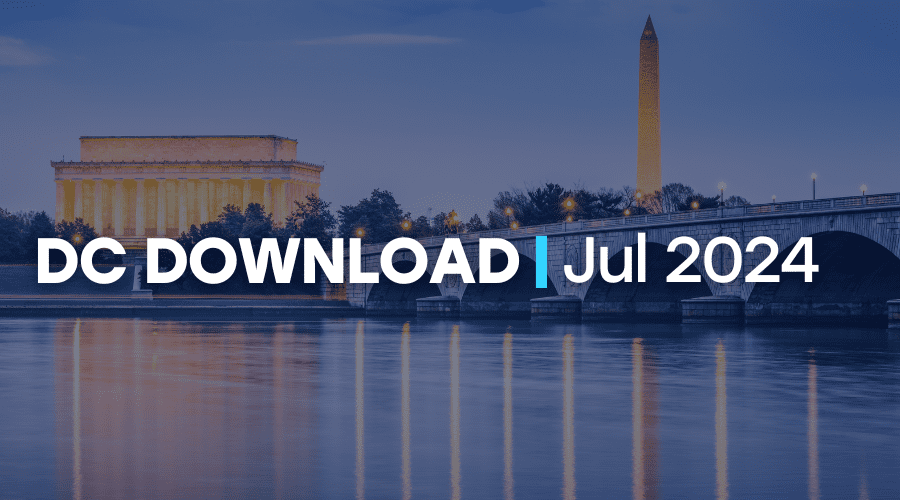Want to stay up to date, but need the short version? We’ve got you covered! Here are the major federal policy updates from Washington, DC that may impact nonprofit work this month.
Midterm Elections
The midterm elections are November 6! Don’t forget to vote and encourage your coworkers and communities to do the same. 35 Senate and all 435 seats in the House of Representatives are up for election – in addition to local lawmakers and initiatives. Visit vote.org to learn more about voting in your state.
Public Service Loan Forgiveness
The Department of Education recently released data showing that 99% of public service loan forgiveness (PSLF) applications have been denied. In the first year of participants being eligible for forgiveness, 28,000 borrowers submitted applications, and only 96 have had their debts cancelled. Over 70% of the applications were denied for not meeting complicated eligibility requirements, and the rest were denied for leaving out required information. Read the Government Accountability Office (GAO) report.
Public Charge
Last month, the Department of Homeland Security (DHS) released its notice of proposed rulemaking on the anticipated public charge rule. For a century, the United States government has stated that immigrant families can seek health and nutrition benefits without fear of harming their immigration case. If the current proposal is finalized, this will no longer be the case, and the change may affect nonprofits’ ability to serve immigrants in their communities. You can learn more from the National Immigration Law Center and DHS. The Federal Register is seeking comment until December 10th.
Unrelated Business Income Tax (UBIT)
The Treasury Department released guidance a few months ago on how organizations can comply with the new UBIT “siloing” provision while they await further clarity. Information provided stated, “There is no general statutory or regulatory definition defining what constitutes a ‘trade or business’ for purposes of the Internal Revenue Code.” It makes clear that in the interim period between when the Tax Cuts and Jobs Act (TCJA) passed and the issuance of final regulations in 2019, nonprofits may rely on a reasonable, good faith interpretation of the UBIT statutes in determining whether activities fall within the same “trade or business.” For more details on the issue and what you can do, check out an op-ed our Chief Strategy Officer Jeff Moore wrote this month for the Chronicle of Philanthropy (subscription required).
Johnson Amendment
Earlier this year, the House of Representatives passed multiple appropriations bills, which contained language that would block enforcement of the Johnson Amendment for churches. The Senate version did not contain any anti-Johnson Amendment language. A conference committee has been attempting to reconcile these and numerous other differences between the bills, but has thus far been unsuccessful. Before leaving town for elections, Congress adopted a continuing resolution that will keep the government open through December 7. We expect negotiators to pick this issue back up when they return in November, so please urge your legislators to fully protect the Johnson Amendment in any appropriations package.



